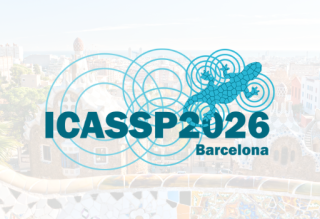- Our Story
- Publications & Resources
- Publications & Resources
- Publications
- IEEE Signal Processing Magazine
- IEEE Journal of Selected Topics in Signal Processing
- IEEE Signal Processing Letters
- IEEE Transactions on Computational Imaging
- IEEE Transactions on Image Processing
- IEEE Transactions on Information Forensics and Security
- IEEE Transactions on Multimedia
- IEEE Transactions on Signal and Information Processing over Networks
- IEEE Transactions on Signal Processing
- IEEE TCI
- IEEE TSIPN
- Data & Challenges
- Submit Manuscript
- Guidelines
- Information for Authors
- Special Issue Deadlines
- Overview Articles
- Top Accessed Articles
- SPS Newsletter
- SigPort
- SPS Resource Center
- Publications FAQ
- Blog
- News
- Dataset Papers
- Conferences & Events
- Community & Involvement
- Professional Development
- For Volunteers
- Information for Authors-OJSP
-
Home
Conferences Events IEEE Signal Processing Magazine IEEE SPL Article IEEE TIFS Article IEEE TMM Article IEEE TSP Article Jobs in Signal Processing Lectures Machine Learning Seasonal Schools Signal Processing News SPM Article SPS Distinguished Lectures SPS Newsletter Article SPS Webinar SPS Webinars SPS Webinar Series Webinar webinars
-
Our Story
What is Signal Processing?

The technology we use, and even rely on, in our everyday lives –computers, radios, video, cell phones – is enabled by signal processing. Learn More » -
Publications & Resources
-
SPS Resources
- Signal Processing Magazine The premier publication of the society.
- SPS Newsletter Monthly updates in Signal Processing
- SPS Resource Center Online library of tutorials, lectures, and presentations.
- SigPort Online repository for reports, papers, and more.
- SPS Feed The latest news, events, and more from the world of Signal Processing.
-
SPS Resources
-
Conferences & Events
-
Community & Involvement
-
Membership
- Join SPS The IEEE Signal Processing Magazine, Conference, Discounts, Awards, Collaborations, and more!
- Chapter Locator Find your local chapter and connect with fellow industry professionals, academics and students
- Women in Signal Processing Networking and engagement opportunities for women across signal processing disciplines
- Students Scholarships, conference discounts, travel grants, SP Cup, VIP Cup, 5-MICC
- Young Professionals Career development opportunities, networking
- Get Involved
-
Technical Committees
- Applied Signal Processing Systems
- Audio and Acoustic Signal Processing
- Bio Imaging and Signal Processing
- Computational Imaging
- Image Video and Multidimensional Signal Processing
- Information Forensics and Security
- Machine Learning for Signal Processing
- Multimedia Signal Processing
- Sensor Array and Multichannel
- Signal Processing for Communication and Networking
- Signal Processing Theory and Methods
- Speech and Language Processing
- Technical Working Groups
- More TC Resources
-
Membership
-
Professional Development
-
Professional Development
- Signal Processing Mentorship Academy (SigMA) Program
- Micro Mentoring Experience Program (MiME)
- Distinguished Lecturer Program
- Distinguished Lecturers
- Distinguished Lecturer Nominations
- Past Lecturers
- Distinguished Industry Speaker Program
- Distinguished Industry Speakers
- Distinguished Industry Speaker Nominations
- Industry Resources
- IEEE Training Materials
- Jobs in Signal Processing: IEEE Job Site
-
Career Resources
- SPS Education Program Educational content in signal processing and related fields.
- Distinguished Lecturer Program Chapters have access to educators and authors in the fields of Signal Processing
- Job Opportunities Signal Processing and Technical Committee specific job opportunities
- Job Submission Form Employers may submit opportunities in the area of Signal Processing.
-
Professional Development
-
For Volunteers
-
For Board & Committee Members
- Board Agenda/Minutes* Agendas, minutes and supporting documentation for Board and Committee Members
- SPS Directory* Directory of volunteers, society and division directory for Board and Committee Members.
- Membership Development Reports* Insight into the Society’s month-over-month and year-over-year growths and declines for Board and Committee Members
-
For Board & Committee Members
Popular Pages
Today's:
- Last Call for Nominations: Technical Committee Vice Chair and Member Positions
- Information for Authors
- (ICME 2026) 2026 IEEE International Conference on Multimedia and Expo
- Submit Your Papers for ICASSP 2026!
- IEEE Transactions on Information Forensics and Security
- IEEE Transactions on Image Processing
- IEEE Signal Processing Letters
- (ASRU 2025) 2025 IEEE Automatic Speech Recognition and Understanding Workshop
- Information for Authors-SPL
- Access Restricted
- Submit a Manuscript
- IEEE Transactions on Signal Processing
- Unified EDICS
- (CAI 2026) IEEE Conference on Artificial Intelligence 2026
- Publications & Resources
All time:
- Information for Authors
- Submit a Manuscript
- IEEE Transactions on Image Processing
- IEEE Transactions on Information Forensics and Security
- IEEE Transactions on Multimedia
- IEEE Transactions on Audio, Speech and Language Processing
- IEEE Signal Processing Letters
- IEEE Transactions on Signal Processing
- Conferences & Events
- IEEE Journal of Selected Topics in Signal Processing
- Information for Authors-SPL
- Conference Call for Papers
- Signal Processing 101
- IEEE Signal Processing Magazine
- Guidelines
Last viewed:
- Call for Proposals: (SLT 2026) 2026 IEEE Workshop on Spoken Language Technology
- IEEE Signal Processing Magazine
- Join Us in Edinburgh for SSP 2025 – Early Bird Registration Open!
- IEEE-USA Offers Free E-books to Members
- Information for Authors
- IEEE Transactions on Multimedia
- Jobs in Signal Processing
- Congratulations to the inaugural SPS Scholarship recipients!
- SPS Staff
- Volunteer Opportunities
- IEEE Transactions on Information Forensics and Security
- (AVSS 2020) 2020 17th IEEE International Conference on Advanced Video and Signal Based Surveillance
- IEEE JSTSP Special Issue on Advanced AI and Signal Processing for Low-Altitude Wireless Networks
- For Volunteers
- IEEE Journal of Selected Topics in Signal Processing (JSTSP) Special Series on AI in Signal & Data Science -- Toward Large Language Model (LLM) Theory and Applications
Simek, Kyle LouisView Profile. (The University of Arizona), “Branching Gaussian process models for computer vision” (2016)
You are here
Newsletter Menu
Newsletter Categories
Top Reasons to Join SPS Today!
1. IEEE Signal Processing Magazine
2. Signal Processing Digital Library*
3. Inside Signal Processing Newsletter
4. SPS Resource Center
5. Career advancement & recognition
6. Discounts on conferences and publications
7. Professional networking
8. Communities for students, young professionals, and women
9. Volunteer opportunities
10. Coming soon! PDH/CEU credits
Click here to learn more.
News and Resources for Members of the IEEE Signal Processing Society
Simek, Kyle LouisView Profile. (The University of Arizona), “Branching Gaussian process models for computer vision” (2016)
Simek, Kyle LouisView Profile. (The University of Arizona), “Branching Gaussian process models for computer vision” (2016) Advisor: Jacobus Kobus Barnard
Bayesian methods provide a principled approach to some of the hardest problems in computer vision—low signal-to-noise ratios, ill-posed problems, and problems with missing data. This dissertation applies Bayesian modeling to infer multidimensional continuous manifolds (e.g., curves, surfaces) from image data using Gaussian process priors. Gaussian processes are ideal priors in this setting, providing a stochastic model over continuous functions while permitting efficient inference.
The authors begin by introducing a formal mathematical representation of branch curvilinear structures called a curve tree and the authors define a novel family of Gaussian processes over curve trees called branching Gaussian processes. The authors define two types of branching Gaussian properties and show how to extend them to branching surfaces and hypersurfaces. The authors then apply Gaussian processes in three computer vision applications. First, the authors perform 3D reconstruction of moving plants from 2D images. Using a branching Gaussian process prior, the authors recover high quality 3D trees while being robust to plant motion and camera calibration error. Second, the authors perform multi-part segmentation of plant leaves from highly occluded silhouettes using a novel Gaussian process model for stochastic shape. The proposed method obtains good segmentations despite highly ambiguous shape evidence and minimal training data. Finally, the authors estimate 2D trees from microscope images of neurons with highly ambiguous branching structure. The authors first fit a tree to a blurred version of the image where structure is less ambiguous. Then they iteratively deform and expand the tree to fit finer images, using a branching Gaussian process regularizing prior for deformation. The proposed method infers natural tree topologies despite ambiguous branching and image data containing loops. This work shows that Gaussian processes can be a powerful building block for modeling complex structure, and they perform well in computer vision problems having significant noise and ambiguity.
Open Calls
| Nomination/Position | Deadline |
|---|---|
| Call for Mentors: 2025 IEEE SPS SigMA Program - Signal Processing Mentorship Academy | 14 September 2025 |
| Last Call for Nominations: Technical Committee Vice Chair and Member Positions | 15 September 2025 |
| Call for Nominations: Technical Committee Vice Chair and Member Positions | 15 September 2025 |
| Submit Your Papers for ICASSP 2026! | 17 September 2025 |
| Call for Nominations: Awards Board, Industry Board and Nominations & Elections Committee | 19 September 2025 |
| Meet the 2025 Candidates: IEEE President-Elect | 1 October 2025 |
| Take Part in the 2025 Low-Resource Audio Codec (LRAC) Challenge | 1 October 2025 |
| Call for proposals: 2027 IEEE Conference on Artificial Intelligence (CAI) | 1 October 2025 |
| Call for Nominations for the SPS Chapter of the Year Award | 15 October 2025 |
| Submit a Proposal for ICASSP 2030 | 31 October 2025 |
| Call for Project Proposals: IEEE SPS SigMA Program - Signal Processing Mentorship Academy | 2 November 2025 |
Society News
- Introducing the SPS Resource Center
- 32 Signal Processing Society Members Elevated to Senior Member
- Upcoming Distinguish Lectures
- Now Live! New IEEE Signal Processing Society Website
- Call for Nominations: Chapter of the Year Award
- Call for Nominations: Awards Board Chair
- Important Message Requiring Your Vote
- SPS Job Marketplace
Conferences & Events
Technical Committee News
Publications News
Education & Resources
SPS Social Media
- IEEE SPS Facebook Page https://www.facebook.com/ieeeSPS
- IEEE SPS X Page https://x.com/IEEEsps
- IEEE SPS Instagram Page https://www.instagram.com/ieeesps/?hl=en
- IEEE SPS LinkedIn Page https://www.linkedin.com/company/ieeesps/
- IEEE SPS YouTube Channel https://www.youtube.com/ieeeSPS
Home | Sitemap | Contact | Accessibility | Nondiscrimination Policy | IEEE Ethics Reporting | IEEE Privacy Policy | Terms | Feedback
© Copyright 2025 IEEE - All rights reserved. Use of this website signifies your agreement to the IEEE Terms and Conditions.
A public charity, IEEE is the world's largest technical professional organization dedicated to advancing technology for the benefit of humanity.








